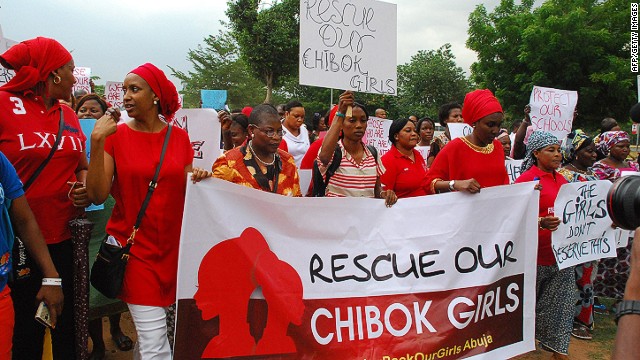
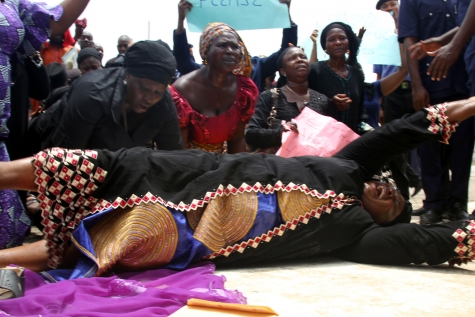
Militants seized about 230 girls in the dead of the night at a high school in the nation's far northeast, a hotbed for Islamist group Boko Haram.
Roughly 200 girls are still missing, although the authorities and parents differ on the number.
Nigerians have rallied for days to criticize the government's handling of the rescue efforts. Hundreds wept and chanted "bring back our girls" during protests in the capital of Abuja on Wednesday. A day later, protesters gathered in Lagos.
Shortly after the abductions last month, frustrated Chibok residents went into the forest in motorbikes to search for the girls.
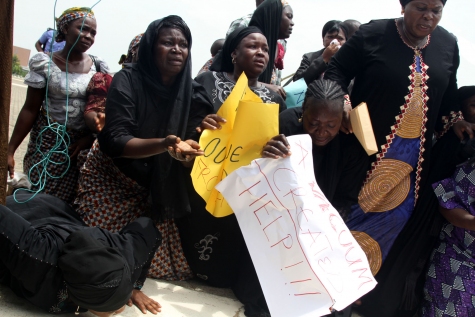
Mother's of the missing school girls protested yesterday in Abuja, Nigeria
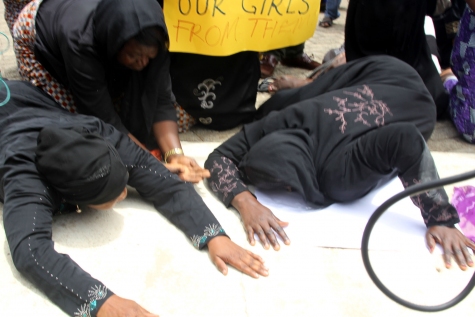
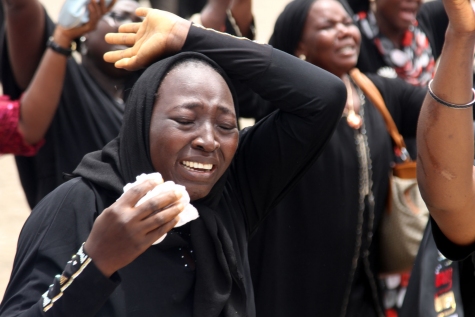
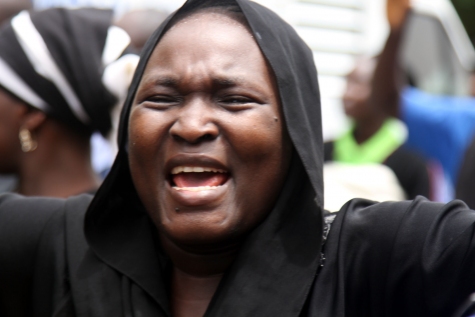
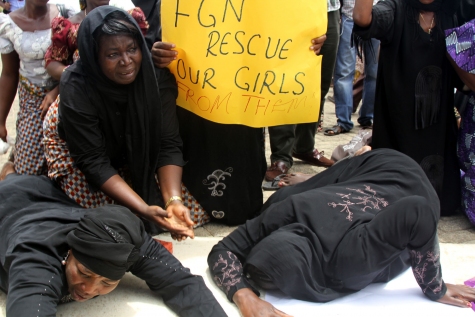
"A total of 230 parents registered the names of their daughters who were missing on the day of the kidnap," said Asabe Kwambura, principal of the Government Girls Secondary School. "From my records, 43 girls have so far escaped on their own from their kidnappers. We still have 187 girls missing."
In Chibok, angry parents accused authorities of playing politics with the lives of their children.
Witnesses have seen militants in dozens of vehicles headed to nearby Cameroon, said Ayuba Alamson, whose two nieces were among the kidnapped.
Borno state Education Commissioner Musa inuwa Kubo said the government and the military are doing whatever it takes to secure their release.
"This is a delicate situation that requires careful handling," Kubo said. "When you have heavily armed men holding close to 200 girls hostage, you have to be very careful in your approach so as not to risk the safety of these girls you want to rescue.

"It is a security issue and we just can't be divulging all the efforts we are making to get these girls freed," the education commissioner said.
But angry Nigerians said authorities are not doing enough. They took to social media using hashtag #BringBackOurGirls and #BringBackOurDaughters to demand more from the government.

The group especially opposes the education of women. Under its version of Sharia law, women should be at home raising children and looking after their husbands, not at school learning to read and write.
Rights groups say the militants kidnap girls to perform chores and sexual services.








.png)
0 comments:
Post a Comment